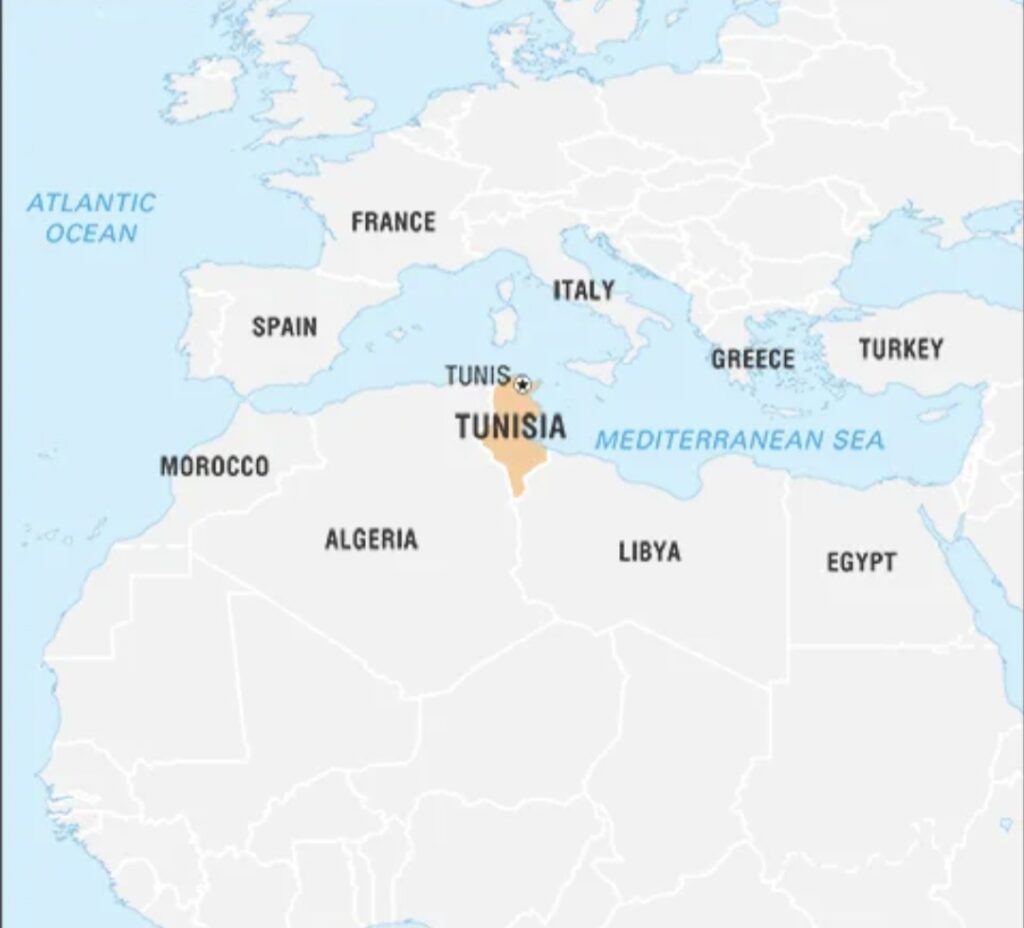By: Srishti Bera, Research Analyst, GSDN

The present turmoil and state of unrest in Tunisia has prevailed from the time President Kais Saied came into power in 2019. Rising inflation, unemployment, poverty due to his form of authoritarian government has left the country in crises lately. Saied’s coup has resulted the Tunisian mass to come down to the streets and protest. There is famine, inflation rising exponentially and shortage of food supply.
Similar disparity in 2011
This is not the first time the country is witnessing such an inflation. The same state of turmoil was seen in Tunisia twelve years back when the country was controlled by the dictator Zine El Abidine Ben Ali. The angry, outrageous Tunisian mob was catalysed by the event of a fruit seller who had burnt himself to protest against the corrupted officers.
Today’s scenario in Tunisia is similar to that of Jasmine Revolution of 2011. Civil unrest, civil resistance, food inflation, corruption, high cost of living, protest of the labour union in opposition to autocratic rule was an integral part of the protest. Disparity was appalling. People were unemployed, the qualified people had to do menial work and people were repressed.
The situation did not seem to have improved. There were corrupted officials who were the beneficiaries along the dictator Ben Ali and his family. The economic and social condition in Tunisia under Ben Ali was grim, the people were enraged. The situation was sparked on 4 January 2011. Mohamed Bouazizi, a street vendor, was harassed by the officers of the Municipality and was frequently asked to pay bribes. On 17 December 2011, Mohamed was harassed and beaten publicly for not carrying permit as a street vendor. In order to protest against the corrupted officers, he set himself ablaze.
On 11January 2012, Mohamed Bouazizi succumbed to the injuries. This day is said to have the marked the Arab Spring in Tunisia. The Jasmine Revolution was characterised by mass protests, civil resistance and finally the overthrow of the authoritarian government of Ben Ali who had captured the power position in 1987. Ben Ali fled to Saudi Arabia.
Regressive policies by Kais
Today, Tunisia under Saied, faces the same political and economic tumult. After Kais Saied’s power grab, he has introduced several repressive political measures in order to enjoy the beneficiaries alone like changes in electoral system, constitution, judiciary system, evisceration of right of Tunisian women.
After Kais coup, he got unchecked powers. The Presidential system gave the dictator the prerogative to constitutionalise new laws in judiciary, freedom of press expressions and organisation of political parties. He had suspended the 2014 Constitution and set up the presidential form of government where the power will be confined only in the presidential decree. Under this system the powers and authority vested have no limit and was not time bound. That means this authoritative government can be in power until it is overthrown by public like the Tunisian Revolution in 2011 where Ben Ali was removed from unchecked powers through mass protests and civil resistance.
He introduced a new presidential system replacing the prevailing system, holding the president as the absolute figure. All the executive power was vested in one hand. He also intervened in the judicial system of the country and further suspended the High Judicial Court. Saied had set up a judicial body again, the power to appoint and the dismiss the judicial officers was granted to him. Again, unreasoned restrictions on travel, freedom of expression and press has been imposed.
The new constitution has foisted arbitrary restrictions on women, on their religious precepts. The women are not entitled to inherit property under the new constitution.
The new presidential system has brought doom. Without paying heed to the economic crisis and instability, President Saied has been passing racist remarks on the illegal immigration of people from the Sub-Saharan region. This is thought to be a tactics of President Saied to divert the ragging people’s attention from the current crises prevailing in Tunisia. The dictator’s anti-migration remarks have made the situation more sensitive and explosive. He has started hate speeches against the immigrants.
According to the National Institute of Statistics, one-third of the Tunisian youth is unemployed. The situation got worse during the Covid 19
Since Tunisia is such a country that is highly dependent upon tourism which has come to a standstill due to skeletal flight service.
Ever since Kais’ coup and the beginning of 2023, a number of leaders from the opposition parties have been arrested. People came down on the streets to protest against the corrupted authorities and blocked roads. The authorities, in order to retaliate, deployed armed forces and have arrested many individuals till date.

